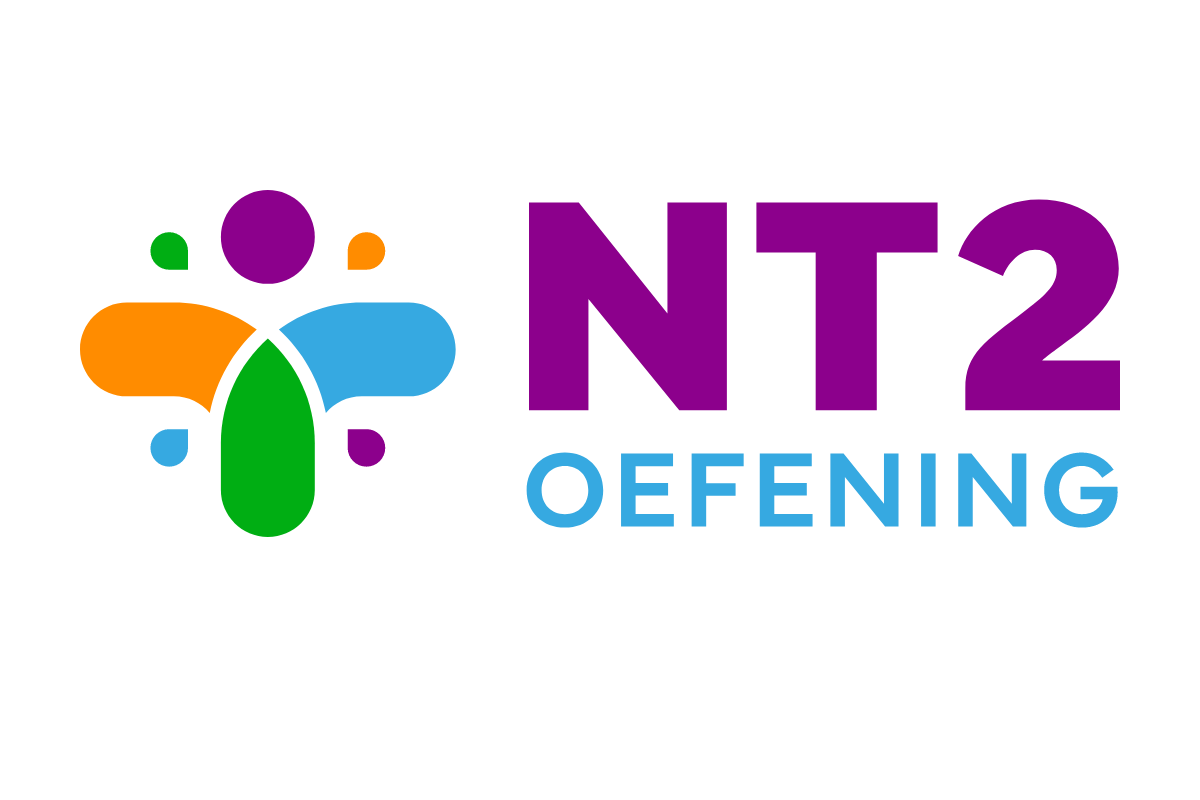Navigating civic integration in the Netherlands can be complex. And, understanding exemptions under the 2013 Civic Integration Act is crucial. So, this blog will guide you through scenarios where you might be exempt from some or all required exams. If you need to integrate under the 2021 Civic Integration Act, we have covered that in another blog. You can find more information about the 2021 Act there. Now, let’s dive into the Inburgering Exam Exemptions under the 2013 Act:
Table of Contents
Exemptions for Employment in the Netherlands
One common scenario for exemptions under the 2013 Civic Integration Act is about employment. Do you have worked in the Netherlands for at least six months during the past year? Then, you may not need to take all the integration exams. This is particularly relevant if you are integrating under the 2013 Act.
Conditions:
- You were employed in the Netherlands.
- You have worked for at least 6 months in the past 12 months.
- You worked at least 48 hours a month.
If you meet these conditions, you should apply for an exemption through the Mijn Inburgering portal. DUO, the agency responsible for overseeing the integration process, will review your application. Then, you will be aware within eight weeks if you qualify for an exemption.
Nt2 Diploma or Certificate
Another pathway to exemption is through the Dutch as a Second Language (Nt2) State Exam. Have you passed one or more Nt2 exams? Then, you may not need to take these exams again as part of your integration under the 2013 Act.
How to Apply:
- Verify your requirement to integrate under the 2013 Civic Integration Act.
- Apply for an exemption for the Nt2 exams you have already passed through Mijn Inburgering.
In some cases, if you need to integrate before January 1, 2015, and you have an Nt2 diploma, you might not need to take any integration exams at all. Make sure to check your integration timeline and apply for an exemption if applicable.
Exemptions for Integration Course Participants
Exemption Based on Demonstrable Effort (AGI)
Have you attended at least 600 hours of an integration course but still struggle to pass the exams? If so, you may be eligible for an exemption known as “ontheffing wegens aantoonbaar geleverde inspanningen”. It is dispensation due to demonstrable effort, AGI. Here’s how you can qualify:
- You need to integrate under the 2013 Civic Integration Act.
- Your integration period should have started at least 2.5 years ago.
- You must have attended a minimum of 600 hours of an integration course. These hours can include both integration and NT2 course hours. If you’ve completed at least 200 hours in an integration course and the remaining in a literacy course, these hours can also be combined. Note that only hours attended in person at a recognized school listed on zoekinburgerschool.nl count towards this total.
- You must have taken all the exams at least three times. No more than two of these attempts can be at the NT2 State Exam.
If your course hours meet these criteria, you can apply for AGI by following these steps:
- Log into “Mijn Inburgering” to check if your 600 course hours have been registered.
- If fewer hours are registered than you attended, ask your school to update DUO digitally. If that’s not possible, request the school to fill out the ‘Verklaring deelname cursus’ statement.
- Include the ‘Verklaring deelname cursus’ statement with your application.
- Fill out the ‘Aanvraag ontheffing aantoonbaar geleverde inspanningen’ form.
- Send the completed form and any required statements to DUO by post.
- DUO will review your application and notify you of their decision within eight weeks.
Exemption for Literacy Course Participants
If you’ve attended a literacy course, you might also qualify for an exemption. The conditions are similar to those for integration course participants. However, there are a few key differences:
- Integration Requirement: You need to integrate under the 2013 Civic Integration Act.
- Integration Period: Your integration period must have started at least 2.5 years ago.
- Course Hours: You need to have completed at least 600 hours. However, at least 300 hours should be about a literacy course. The remaining hours can be from an integration course. Also, only in-person hours at a recognized school on zoekinburgerschool.nl are counted.
After submitting your application, you’ll need to take a test to demonstrate your learning progress. This test costs €150, and you will need to pay the fee before you receive an invitation from DUO. The test assesses your ability to learn Dutch. If you are found capable, you will not receive an exemption. Active participation during the test is crucial—failure to engage will also result in no exemption being granted.
Here’s how to apply:
- Check Registered Hours: Verify your registered course hours in “Mijn Inburgering.”
- Update Missing Hours: If the registered hours are incorrect, ask your school to update DUO digitally or complete the ‘Verklaring deelname cursus’ form.
- Complete the Application Form: Fill out the ‘Aanvraag ontheffing aantoonbaar geleverde inspanningen’ form.
- Submit Your Application: Mail the form and necessary documents to DUO. You will receive a response within eight weeks.
Exemptions for Praktijkonderwijs, VSO, or ISK Participants
You may qualify for exemptions under the 2013 Civic Integration Act, if you’ve attended the programs below:
- Practical Education Program (Praktijkonderwijs),
- Secondary Special Needs Education (VSO), or
- An International Bridging Program (ISK).
To qualify for an exemption, the following conditions must be met:
- Integration under the 2013 Civic Integration Act (‘Wet inburgering 2013’).
- Integration period at least 2.5 years ago.-
- At least 600 hours of lessons in Dutch language and Knowledge of Dutch Society.
You can combine hours from different types of education. If you’re short of 600 hours, you can also include hours from courses followed at an integration school on the website zoekinburgerschool.nl. These lessons must have been attended within the two years before your application. In addition, if you needed to complete the participation statement (PVT), you must have completed the lessons and signed it.
If You Haven't Taken All Exams Three Times
If you haven’t taken all the exams at least three times, you can still apply for dispensation. However, you will need to demonstrate your learning by taking a test. This test costs €150. DUO will send you a bill for the test, and after payment, you will receive an invitation. During the test, DUO will assess whether you are capable of learning the Dutch language. If you are deemed capable, you will not receive dispensation. Active participation during the test is essential—if you do not provide answers, you will not receive dispensation either.
Exemptions for Long-Term Residents
Living and working in the Netherlands for an extended period may also qualify you for an exemption. Have you lived in the Netherlands for at least 10 years and worked here for at least 5 years? Then, you might not need to take any integration exams.
Key Conditions:
- Continuous residence in the Netherlands for 10 years or more.
- Employment in the Netherlands for 5 years or more (voluntary work also counts).
To apply for this exemption, you will need to complete the ‘Aanvraag ontheffing inburgeringsplicht’ form. Then you will have your employer complete the ‘werkgeversverklaring’ (employer’s statement). DUO will invite you for an interview as part of the evaluation process.
Exemptions Based on Obtained Diplomas and Exceptional Individual Circumstances
Navigating the integration process can be challenging. However, certain exemptions may apply if you have obtained specific diplomas or are facing exceptional circumstances.
Have you already obtained a diploma, either in the Netherlands or from a Dutch-language program in Belgium or Suriname? Then, you may be eligible for an exemption. This exemption is only available if you are required to integrate. You must apply for this exemption using the appropriate form.
Types of Exemptions
There are three types of exemptions available based on your educational background:
1. Full Exemption
- It means you are entirely exempt from the integration requirement and do not need to take the integration exam. To qualify for a full exemption, you must have one of the following diplomas:
- VMBO
- HAVO
- VWO
- MBO level 2 or higher
- HBO (higher professional education), provided the program was in Dutch
- WO (university education), provided the program was in Dutch
- A diploma obtained in Belgium or Suriname, with the following conditions:
- The diploma must be from a program conducted in Dutch.
- You must have passed the subject of Dutch.
2. Partial Exemption
- With a partial exemption, you are exempt from certain parts of the integration exam. However, you must still complete the remaining sections. You may be eligible for a partial exemption if you hold one of the following diplomas or documents:
- Staatsexamen Nt2 (Dutch as a Second Language state exam)
- Deelcertificaat Staatsexamen Nt2 (partial certificate Dutch as a Second Language state exam)
- If you passed the spoken Dutch test (TGN) as part of the Basic Civic Integration Exam Abroad (BIB) before November 2014 with at least 37 points, and your integration and participation plan (PIP) requires exams at A2 language level, you may be exempt from the Speaking exam.
- A list of marks or certificate from secondary education, adult secondary education, or secondary education state exams, with a sufficient grade for Dutch.
- A foreign diploma or certificate showing that:
- You passed one or more parts of the exam at A2 (Wi2013) or B1 (Wi2021) levels, and
- You completed the program at a government-accredited institution in the respective country.
3. Temporary Exemption
A temporary exemption applies when you are currently in education and temporarily do not have to integrate.
Exemptions Due to Illness or Disability
Maybe, you have a serious illness or disability that prevents you from integrating. So, you may be eligible for a full exemption under the 2013 Civic Integration Act. This exemption recognizes that your health condition makes it impossible to fulfill the integration requirements.
To apply:
- Complete the ‘Aanvraag ontheffing bij ziekte’ form.
- After payment, you will be assessed by an Argonaut doctor, who will determine your ability to integrate.
DUO will decide whether to grant the exemption based on the doctor’s assessment. If you are granted dispensation, DUO will reimburse €225 for the costs associated with the assessment.
Exemptions Due to Exceptional Individual Circumstances
In rare cases, you may be exempt from integration exams due to exceptional individual circumstances. This is known as the exemption because of exceptional individual circumstances (BIO).
- You must demonstrate that you have no other options for dispensation.
- You must prove that you have done your best to learn Dutch but remain unable to integrate.
To apply for this exemption, complete the relevant form in Mijn Inburgering and provide all necessary documentation. DUO will review your case and decide whether to grant an exemption.
Conclusion
There are several pathways for exemptions under the 2013 Civic Integration Act from the Inburgering exams. Whether you have been employed, obtained an Nt2 diploma, completed significant coursework, or have other qualifying circumstances, it’s important to understand your rights and apply for exemptions where applicable. For those integrating under the 2021 Act, be sure to check our previous blog for specific information relevant to your situation.
Nt2 Oefening
At NT2 Oefening, we are your trusted companion in your Dutch language learning journey. Our platform is designed to support both students and teachers with tailored exercises that make mastering the Dutch language engaging and effective. Whether you’re just starting or looking to refine your skills, NT2 Oefening is here to help you every step of the way. Explore our resources and take your Dutch to the next level with us!

